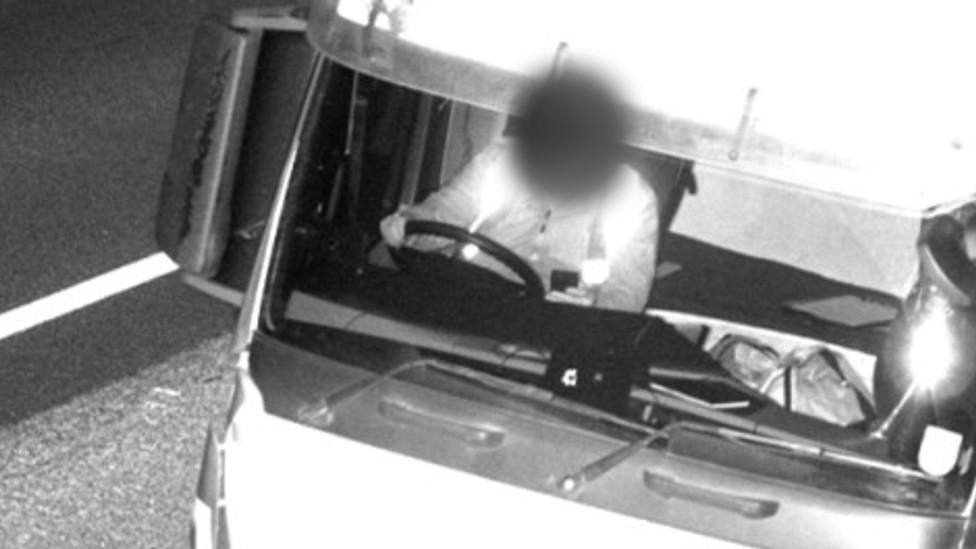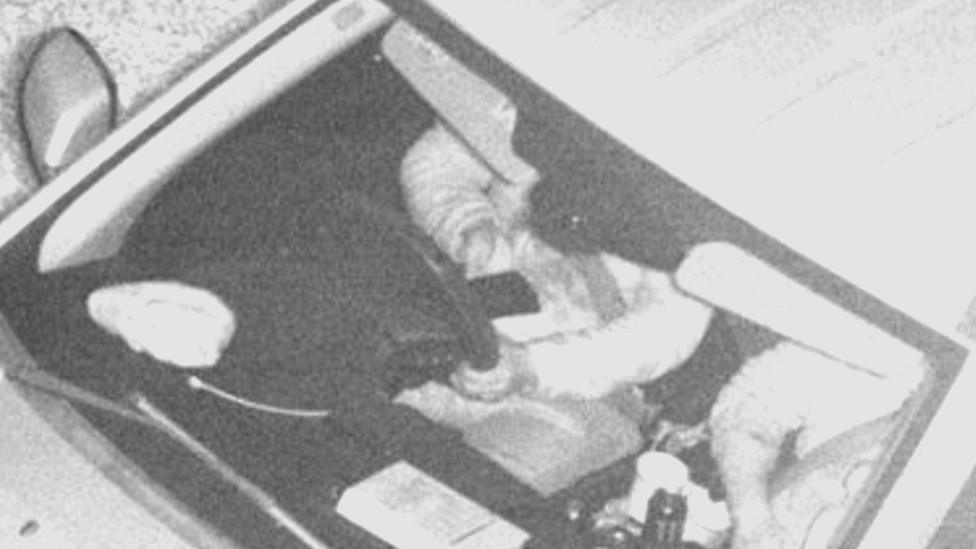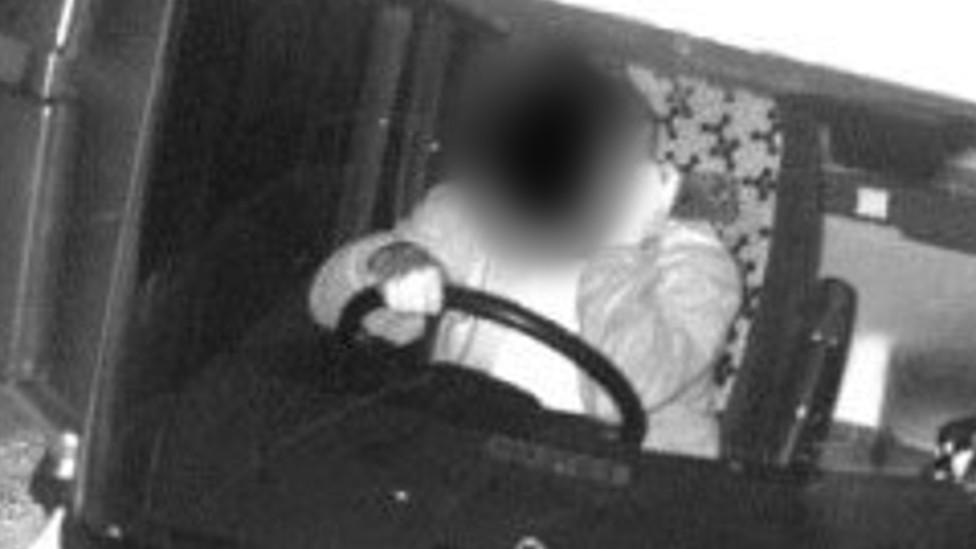M6 at Haydock study records hundreds of driving offences
- Published

The study found seat belt offences were most common amongst commercial vehicle drivers
A study of drivers using a section of the M6 has identified a seat belt or mobile phone offence every 90 seconds.
National Highways used high-visibility cameras to check if motorists wore a seat belt or used a mobile phone near junction 23 at Haydock, Merseyside, earlier in December.
The check, part of a national study, identified more than 750 such offences.
Project manager Jamie Hassall said the findings were "disappointing to say the least".
A representative for the road management body said the national pilot project, which has previously checked sites in the South and West Midlands, has been collecting data on illegal mobile phone use and the number of both drivers and passengers failing to wear seat belts.
They said it was sited within roadworks near the junction during the first two weeks of December and on average, it recorded an offence every 90 seconds.
All the other sites previously tested saw an average of an offence every six minutes.

More than half of the mobile phone offences were committed by car drivers

The project's technical director said the technology being used "makes detection straightforward"
Mr Hassall said National Highways wanted to find out "whether driving through a substantial section of roadworks with barriers, a reduced speed limit and other traffic management would mean drivers and passengers modifying their behaviour".
"The findings are disappointing to say the least with drivers spotted using a mobile phone almost every five minutes and lots of drivers and passengers simply not bothering to belt up," he said.
"Hopefully, these results will be a wake-up call to motorway users - especially as we head into the busy Christmas and New Year travel period."
The study has been conducted in conjunction with engineering firm AECOM.
The company's technical director Dr Jamie Uff, who has been running the pilot project on the ground, said the technology being used "makes detection straightforward and is providing valuable insight to the police and policy makers on the current level of road user behaviour".
He said almost 60% of the mobile phone offences spotted "were committed by car drivers, while seat belt offences were typically an issue associated with commercial vehicles, with 86% of the offences being committed by van or HGV occupants".
The National Highways representative said about 30% of road deaths each year were "linked to not wearing a seatbelt and over 100 people are killed or seriously injured in a collision where the driver was found to have been distracted".

Why not follow BBC North West on Facebook, external, Twitter, external and Instagram, external? You can also send story ideas to northwest.newsonline@bbc.co.uk, external